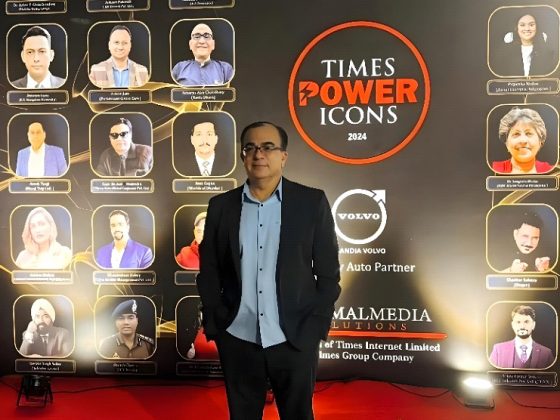20 Years Of Creating Seamless Customer Journeys By Sarita Singh Head Of Digital Marketing Moksha Media Group
“Digital marketing’s future will be defined by personalized storytelling and AI-driven insights, transforming consumer engagement into a seamless & meaningful connection. Brands that embrace this shift will move beyond mere reach-performance, creating experiences that resonate deeply, build trust and foster long-term loyalty in an increasingly crowded digital landscape.”
From my experience, FMCG brands can create seamless, end-to-end customer journeys by focusing on personalisation, timely engagement, and consistency across digital touchpoints. First, data-driven insights are key to tailoring messaging at every step—from awareness to post-purchase follow-up. This might include personalised product recommendations on the website or contextual retargeting ads that reflect prior customer interactions. Next, brands should optimise omnichannel experiences, ensuring a smooth handoff between social media engagement and website checkout. Finally, maintaining consistency in brand tone, offers, and customer support across all channels is crucial. When every touchpoint, from ads to emails, aligns with the brand’s promise, it fosters trust and keeps customers coming back.
Exploring New Digital Platforms for FMCG Promotion
Some of the most exciting new channels for FMCG product promotions are short-form video platforms like YouTube Shorts, TikTok, and Instagram Reels. These platforms are ideal for FMCG because they allow brands to showcase products in authentic, quick snapshots that resonate well with younger audiences. For example, YouTube Shorts and Instagram Reels instantly connect with audiences and can significantly boost a brand’s CTR and ROAS. Additionally, WhatsApp Business offers promising personal customer engagement opportunities, providing updates, deals, and customer service directly in-app, strengthening customer connections. Shoppable content on social commerce platforms like Facebook Shops also enables seamless product discovery and purchases, making it easier to reach and convert a broad consumer base.
Boosting FMCG Engagement with Augmented Reality
Augmented reality (AR) can be a game-changer for FMCG brands in terms of customer engagement and product discovery. With AR, customers can virtually “try” products—such as visualising food packaging or seeing how a product would look on their shelves before buying. This interactive approach not only creates a fun and engaging experience but also simplifies decision-making by offering instant product demos or real-time details. AR effectively connects with customers on a personal level, often leading to faster purchase decisions.
Personalisation That Respects Privacy
To balance targeted marketing with strict privacy practices, FMCG brands should use anonymised data and AI to create segments and predict preferences without identifying individuals. Transparent privacy settings that let customers control how their data is used build trust while allowing brands to tailor experiences. Engaging content, like quizzes or surveys, also encourages customers to voluntarily share preferences, which feels less invasive. Overall, respecting privacy through clear policies and opting for anonymised, consent-based data significantly enhances customer loyalty and trust.
Essential Digital KPIs for FMCG Growth
To drive both immediate impact and long-term growth, FMCG brands should prioritise KPIs like ROAS (Return on Ad Spend) to track campaign profitability and engagement metrics like click-through rate (CTR) and time spent on pages to measure customer interest. For sustained growth, customer lifetime value (CLV) is invaluable, showing whether campaigns are fostering loyalty rather than one-time purchases. Conversion rates across key touchpoints are also essential for tracking the effectiveness of the digital journey in turning interest into action.
Staying Ahead with Innovative Digital Strategies
To stay competitive, FMCG brands should embrace a mindset of continuous learning and flexibility. The best performing brands test new channels early, whether experimenting with platforms like YouTube Shorts and TikTok or exploring interactive elements like AR. A strong focus on customer feedback loops— monitoring and acting on real-time insights—enables quick strategy adjustments. Beyond adopting new technologies, the real edge lies in deeply understanding customer preferences and continuously adapting the digital experience to make it seamless and personalised. By combining agile experimentation with customer-centricity, brands can remain relevant and innovative even in highly competitive markets.
The Power of Digital-First DTC Models for FMCG
Digital-first DTC models allow FMCG brands to gain greater control over brand positioning and establish a direct connection with consumers, fostering closer, more personalised relationships. This approach often improves brand loyalty, as customers feel understood and connected. DTC also accelerates feedback loops, making refining products based on customer insights easier— an invaluable advantage in fast-paced FMCG markets. With DTC, brands gain more f lexibility in pricing and promotions, which can positively impact sales and help reposition the brand as more premium or innovative, depending on their strategy.
Building Brand Identity Through Digital Storytelling
Digital storytelling brings a brand to life, making it feel relatable and authentic. By sharing stories reflecting values, mission, or customer experiences, brands can create an emotional connection beyond the product itself. Stories highlighting a brand’s journey or impact resonate deeply, especially when they align with the audience’s values. This approach communicates not just what a brand sells but why it matters, fostering a sense of community and strengthening customer loyalty.
The Impact of User-Generated Content and Reviews
User-generated content (UGC) and customer reviews are invaluable for digital strategies as they build trust and authenticity. Showcasing real customers using and enjoying products creates a relatable and credible image that resonates with potential buyers. Reviews, in particular, address common questions or concerns, directly influencing purchasing decisions. Strategically integrating UGC and reviews across digital platforms strengthens brand credibility, boosts engagement, and invites customers to become a part of the brand’s story, creating a genuine sense of community.
Redefining Loyalty Programs with Web3 Technologies
Web3 technologies like blockchain, NFTs, and decentralised apps (dApps) have the potential to revolutionise FMCG loyalty programs, making them more customer-centric, f lexible, and engaging. Blockchain-based tokens allow brands to introduce loyalty points that are transparent, transferable, and even redeemable across partner brands, offering real value beyond traditional points. NFTs, for instance, can add an exclusive edge, allowing brands to reward top customers with unique digital assets or limited-time experiences. Decentralised apps empower customers by giving them control over their data and rewards, fostering trust and a stronger brand connection. Web3 opens up new loyalty programs for brands that feel less transactional and more about genuine engagement and empowerment.








